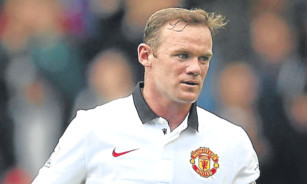
The news that Football League clubs slashed spending on agents fees by 18% last season has been greeted in some quarters as a sign of progress.
But for me, the fact that clubs below the English Premier League still forked out £17.7-million is a sign that ethics in football have gone out the window.
It’s bonkers that people can broker deals between players and clubs and walk away with money like that for doing it.
The drain on football’s finances may not be quite as alarming in Scottish football, where less and less cash in changing hands in transfers.
But the figure for England’s top flight if it ever come out will be worryingly mind-blowing. And it’s even crazier when you consider how much media scrutiny transfers generate.
How is it possible for tens of millions of pounds to be squeezed out of the game by agents without so much as a question being asked? These guys are all over deals, taking money from players and clubs on both sides of any given deal and for what? Negotiating on their behalf?
Agents are hugely overcompensated for what they do, and that’s the proof that money in football has gone too far.
When an MK Dons side assembled for £300,000 knocks a Manchester United team whose captain earns that sum every week out of the League Cup, we’ve gone through the looking glass.
And God only knows what Rooney’s agent pocketed for doing that deal?
Personally, I have never employed an agent and I never will. All of the moves throughout my career were handled pretty much between the clubs involved and myself. They were simple in nature and no money was wasted. Even now, in my media career, I do my deals myself. I just don’t see the value in handing 12-15% of my earnings to someone for doing something I can do on my own.
Unfortunately, it doesn’t seem to me like our football clubs or their players are inclined to start thinking the same way.
And as a result, I think it’s high time the decision was taken out of their hands.
For me, the grey area in which agents operate beyond media scrutiny but within touching distance of the money swirling around football is too ripe for exploitation.
The transfer system is getting too complicated, and there are too many avenues along which unscrupulous individuals and there are plenty of those around can sneak towards financial gain.
When a player moves between clubs, it should be simple. Money moves from the buying club to the selling club. That’s it, and it should be policed by FIFA.
My fear, however, is that we’ve come so far down this road, turning back may prove impossible.
There’s now a secondary industry running beneath, but in tandem with football.
It’s an industry that can coax nigh-on £20-million out of lower-league clubs every season and even more from the real big guns.
And it’s all fuelled by people at the top of our clubs who feel they can afford to drop huge fees to agents just to save themselves a bit of legwork in setting up transfers.
These are the people chairmen, owners and chief executives who have created this situation.
They need to have a good long look at themselves before it gets any worse.

Enjoy the convenience of having The Sunday Post delivered as a digital ePaper straight to your smartphone, tablet or computer.
Subscribe for only £5.49 a month and enjoy all the benefits of the printed paper as a digital replica.
Subscribe